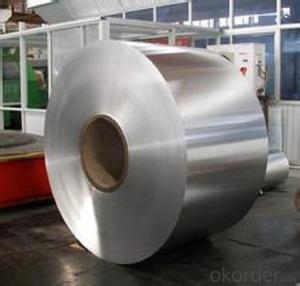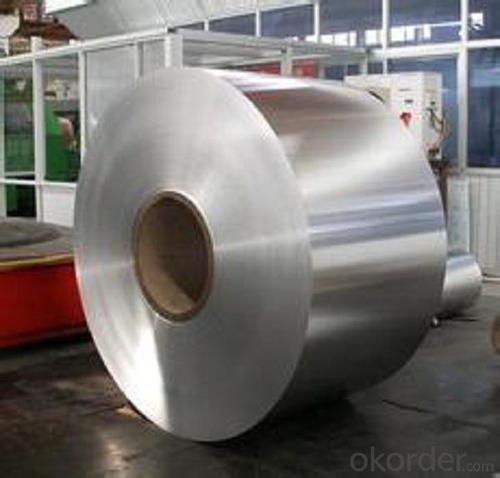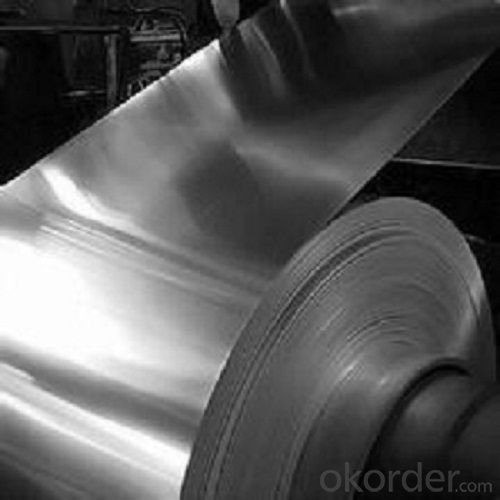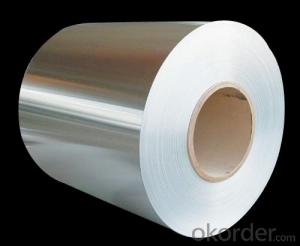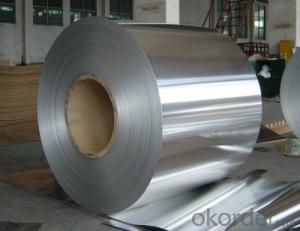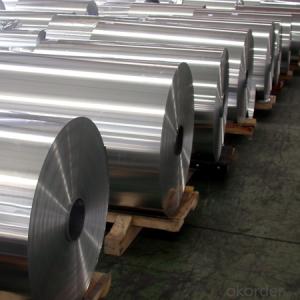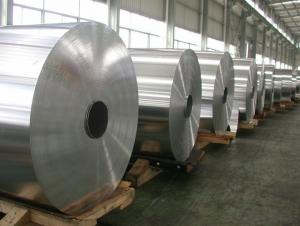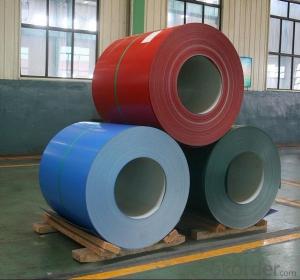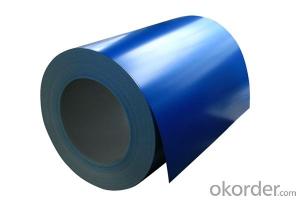Carrier Air Conditioner Aluminum Coil for Roofing, Ceiling, Gutter, and Decoration
- Loading Port:
- Shanghai
- Payment Terms:
- TT OR LC
- Min Order Qty:
- 2.5
- Supply Capability:
- 5000 m.t./month
OKorder Service Pledge
OKorder Financial Service
You Might Also Like
Specification
Aluminum Coil for Roofing, Ceiling, Gutter, Decoration
l Product Information
1. Alloy: 1100, 1145, 1050, 1060, 1070, 3003, 3105, 3A21, 3005, 3105, 3A21, 5052,5754,5082, 5083, 5182,5A03, 6063,6061,6082,8011 |
l Packaging & Delivery
Packaging detail: Standard seaworthy exporting carton, Wooden pallets, waterproof paper and plastic coverage or as customer's requirements
Delivery detail: about 25 days from received original L/C or advance payment.
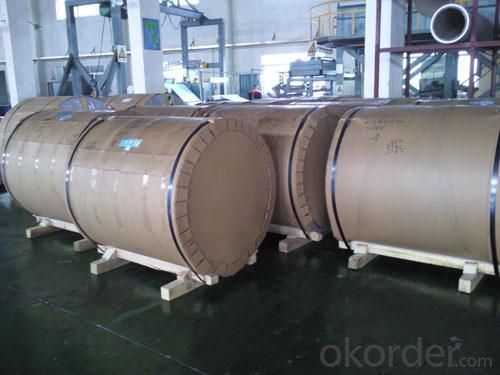
l Company Profile
CNBM International Corporation, China National Building Materials (Group) Corporation, is one of the largest companies in China building material & equipment industry, with 42,800 employees and sales in 2005 of US Dollar 4.395 billion. In 2006, China National Building Material Company Limited was listed on Hong Kong Stock Market with the stock code as 3323.
Aluminium coil is a popular product in the market of CNBM. With advanced technology and equipment, CNBM has sold its hight quality aluminium coil to the world.
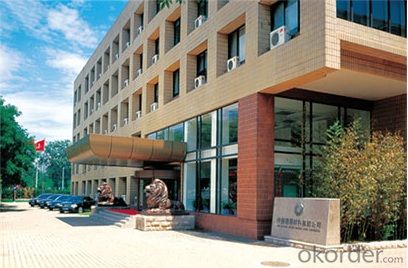
l Product Images
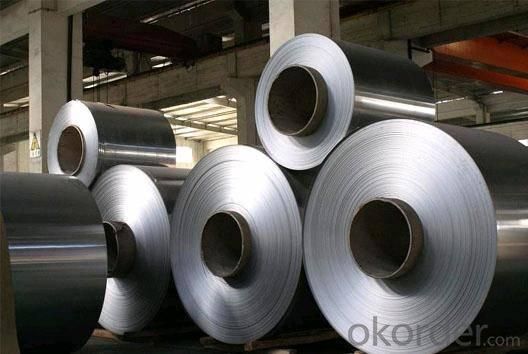
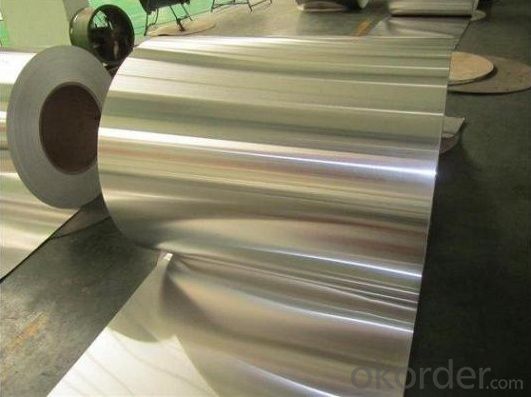
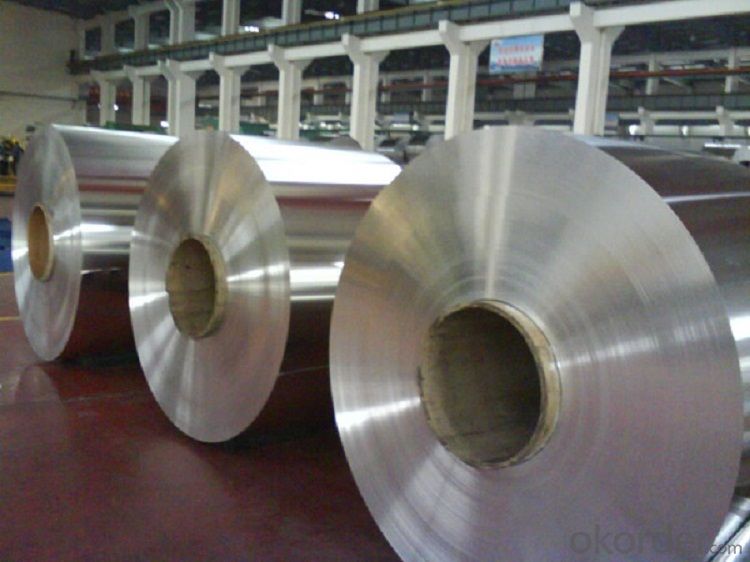
l Certificates
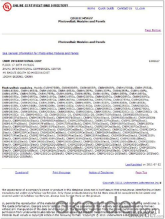
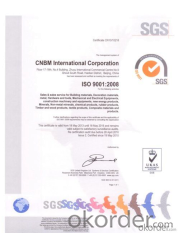
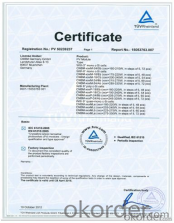
l FAQ
Q: Do you provide free samples?
A: Yes, free samples will be sent to you on freight at destination.
Q: Can I get your latest products catalogue?
A: Yes, it will be sent to you in no time.
Q: What is the MOQ?
A: 2.5 tons
Q: What are your payment terms?
A: We accept L/C, T/T.
- Q: Can aluminum coils be used in the production of aluminum composite doors?
- Yes, aluminum coils can be used in the production of aluminum composite doors. Aluminum composite doors are made by sandwiching a core material between two aluminum sheets. The core material can be made of different materials such as polyethylene or mineral-filled fire-resistant materials. Aluminum coils are a popular choice for manufacturing aluminum composite doors because they offer several advantages. Firstly, aluminum is a lightweight material, which makes the doors easier to handle and install. Secondly, aluminum is highly resistant to corrosion, ensuring durability and longevity of the doors. Additionally, aluminum coils can be easily shaped and molded, allowing for the creation of custom designs and styles. The use of aluminum coils in the production of aluminum composite doors also provides flexibility in terms of color options. Aluminum can be powder coated or painted in different shades, allowing for a wide range of choices to suit various architectural styles and preferences. Overall, aluminum coils are a suitable and commonly used material in the production of aluminum composite doors due to their lightweight, corrosion-resistant, and customizable properties.
- Q: What are the different coil recoiling options available for aluminum coils?
- Depending on the specific requirements and desired outcomes, there are various options available for recoiling aluminum coils. One possibility is to use the oscillate recoiling method, which involves winding the aluminum coil in a zigzag pattern. This technique can help reduce coil set and improve flatness, making it ideal for applications where a flat, smooth surface is crucial. Another option is the traverse winding method, where the aluminum coil is wound back and forth in a controlled manner. This technique helps evenly distribute tension across the coil, minimizing the risk of coil breaks and ensuring consistent performance. Additionally, there are choices for coil slitting and rewinding. Slitting involves cutting the aluminum coil into narrower strips, which can be rewound into smaller coils. This option is commonly employed when smaller coil sizes are necessary for specific applications. Moreover, some recoiling options include coil rewinding with tension control systems. These systems ensure that the tension applied during rewinding is controlled and consistent, preventing overstretching or deformation of the aluminum coil. In conclusion, the selection of recoiling options for aluminum coils depends on factors such as desired surface finish, coil size requirements, and specific application needs. Manufacturers and processors of aluminum coils can offer guidance and expertise in selecting the most suitable recoiling option based on these considerations.
- Q: Can aluminum coils be used in the production of consumer electronics?
- Consumer electronics can make use of aluminum coils. Aluminum, being a versatile and lightweight metal, offers numerous advantages in the manufacturing of electronic devices. With its exceptional thermal conductivity, it is perfect for dissipating heat in components like motors, transformers, and power supplies. Aluminum coils find widespread application in smartphones, laptops, and tablets. They are commonly utilized in constructing the housing or casing of these devices, providing a durable and lightweight solution. Moreover, aluminum's non-magnetic nature makes it suitable for electronic devices that require minimal magnetic field interference. Furthermore, aluminum coils exhibit good electrical conductivity, making them valuable in applications that necessitate efficient transmission of electrical signals. They are frequently used in manufacturing antennas, connectors, and other electronic components that require high conductivity. Additionally, aluminum is highly recyclable, aligning with the increasing demand for sustainable manufacturing practices. Incorporating aluminum coils into consumer electronics not only offers functional benefits but also contributes to a greener and more environmentally friendly production process. In conclusion, aluminum coils are indeed suitable for use in the production of consumer electronics due to their exceptional thermal conductivity, lightweight and durable properties, good electrical conductivity, and recyclability.
- Q: This question asks for methods to preserve the lifespan of an aluminum coil.
- <p>To maintain an aluminum coil and ensure its longevity, follow these steps: Store the coil in a cool, dry place away from moisture and direct sunlight. Keep it clean by regularly removing dust and debris. Avoid scratching or denting the coil's surface. Handle the coil carefully to prevent damage. Use appropriate lubricants when necessary to reduce friction. Regularly inspect the coil for any signs of corrosion or wear and address these issues promptly. By following these practices, you can extend the life of your aluminum coil and maintain its quality.</p>
- Q: What is the maximum yield strength of aluminum coils?
- The specific alloy and temper of aluminum significantly influence the maximum yield strength of aluminum coils. Typically, aluminum coils exhibit a yield strength between 10,000 and 40,000 psi. It must be emphasized that diverse properties and, consequently, varying maximum yield strengths are observed in different aluminum alloys and tempers. Furthermore, the thickness and width of aluminum coils have an impact on their maximum yield strength as well. Thus, to ascertain the precise maximum yield strength of aluminum coils, it is advisable to refer to the manufacturer's specifications or standards pertaining to the specific alloy and temper of the coils.
- Q: What is the typical fatigue strength of aluminum coils?
- The typical fatigue strength of aluminum coils varies depending on various factors such as the alloy used, the manufacturing process, and the specific application. However, in general, aluminum coils have relatively high fatigue strength compared to other materials, making them suitable for applications where repeated cyclic loading is involved.
- Q: Is it possible to use an aluminum coil for cooking rice?
- <p>While it is technically possible to use an aluminum coil to cook rice, it is not recommended due to potential health risks. Aluminum can leach into food, especially when heated, and long-term exposure to aluminum may have adverse effects on health. Instead, use materials like stainless steel, cast iron, or non-stick cookware specifically designed for cooking rice to ensure safety and better results.</p>
- Q: How are aluminum coils measured and specified?
- Several key factors are taken into account when measuring and specifying aluminum coils. Gauge or millimeters are typically used to measure the thickness of the coil, which determines its strength and durability. Thicker coils are more robust. The width of the coil, measured in inches or millimeters, is another important specification. It determines the size and coverage area of the coil, with wider coils offering greater coverage. The length of the coil is also crucial and is typically measured in feet or meters. It determines the amount of material available for a specific project. Longer coils are often preferred as they minimize the need for joints during installation. The aluminum alloy and temper used in the coil are specified as well. Different alloys have different mechanical and chemical properties, making them suitable for specific applications. The temper, which refers to the heat treatment process applied to the aluminum, affects its hardness and flexibility. The weight of the coil is an important consideration and is typically measured in pounds or kilograms. It determines the handling and transportation requirements for the coil. Lastly, the surface finish of the coil is specified. Common finishes include mill finish, which is untreated, and coated finishes such as painted or anodized. The surface finish affects the appearance and corrosion resistance of the coil. Overall, the measurement and specification of aluminum coils involve factors like thickness, width, length, alloy, temper, weight, and surface finish. These specifications ensure that the coils meet the desired requirements for various applications.
- Q: Can aluminum coils be used in corrosive environments?
- Certainly, aluminum coils are suitable for use in environments that are prone to corrosion. The reason behind this lies in the remarkable corrosion resistance of aluminum, which is attributed to the development of a shielding oxide layer on its surface. This oxide layer effectively acts as a barricade, thwarting any future corrosion. Furthermore, manufacturers often apply an additional protective coating or employ specialized treatments to augment the resilience of aluminum coils against corrosive environments. Nevertheless, it is imperative to thoroughly evaluate the exact corrosive conditions and seek advice from experts to ensure the compatibility of the chosen aluminum coil and protective measures with the specific circumstances in which they will be employed.
- Q: Can aluminum coils be used in the production of aluminum composite panels?
- Yes, aluminum coils can be used in the production of aluminum composite panels. Aluminum coils are commonly used as the main material for manufacturing aluminum composite panels, which consist of a core sandwiched between two layers of aluminum. The coils are processed to form flat sheets that are then coated, bonded, and pressed together to create the final panel. The use of aluminum coils in this process allows for efficient production and ensures the panels have a durable and lightweight structure.
Send your message to us
Carrier Air Conditioner Aluminum Coil for Roofing, Ceiling, Gutter, and Decoration
- Loading Port:
- Shanghai
- Payment Terms:
- TT OR LC
- Min Order Qty:
- 2.5
- Supply Capability:
- 5000 m.t./month
OKorder Service Pledge
OKorder Financial Service
Similar products
Hot products
Hot Searches
Related keywords
